Skoda Superb Combi vs Toyota Highlander – Differences & prices compared
Compare performance, boot space, consumption and price in one view.
Find out now: which car is the better choice for you – Skoda Superb Combi or Toyota Highlander?
The Skoda Superb Combi (Estate) comes with a Petrol MHEV, Diesel, Petrol or Plugin Hybrid engine and Automatic transmission. In comparison, the Toyota Highlander () features a engine with transmission.
When it comes to boot capacity, the Skoda Superb Combi offers 690 L, while the Toyota Highlander provides – depending on how much space you need. If you’re looking for more power, decide whether the 265 HP of the Skoda Superb Combi or the of the Toyota Highlander suits your needs better.
In terms of consumption, the values are 0.40 L per 100 km for the Skoda Superb Combi, and for the Toyota Highlander.
Price-wise, the Skoda Superb Combi starts at 35200 £, while the Toyota Highlander is available from . Compare all the details and find out which model fits your lifestyle best!
Skoda Superb Combi
The Škoda Superb Combi combines practicality and elegance, making it a popular choice for families and professionals alike. Its spacious interior offers exceptional comfort and ample storage, suitable for long journeys and everyday errands. Additionally, the refined design and advanced technology features ensure a sophisticated driving experience.
details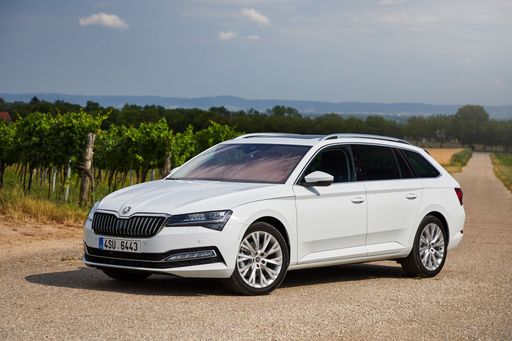 @ Skoda Presse Deutschland
@ Skoda Presse Deutschland
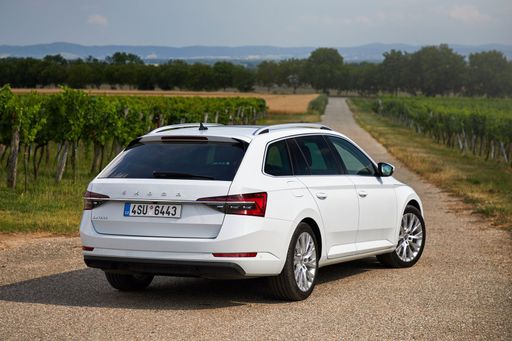 @ Skoda Presse Deutschland
@ Skoda Presse Deutschland
Toyota Highlander
The Toyota Highlander is a versatile SUV that seamlessly blends comfort and practicality, making it an ideal choice for families and adventurers alike. With its spacious interior and a clever layout, it offers ample room for passengers and luggage, ensuring every journey is a comfortable experience. Its sophisticated design is complemented by advanced technology features, enhancing both connectivity and safety on the road.
details @ Toyota
@ Toyota
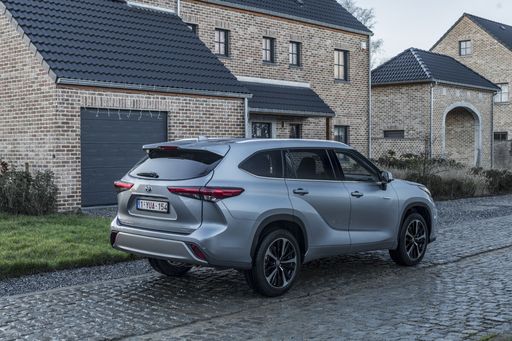 @ Toyota
@ Toyota
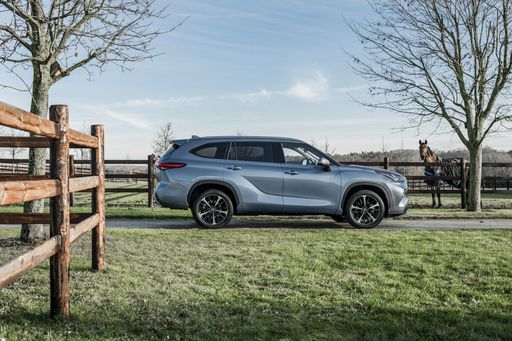 @ Toyota
@ Toyota
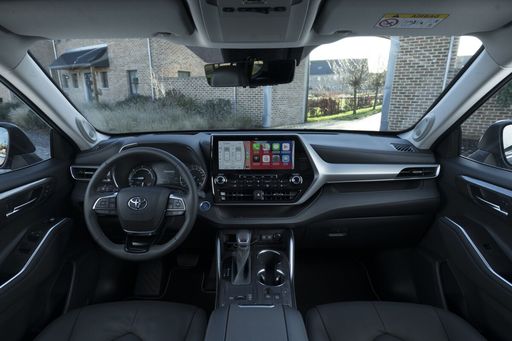 @ Toyota
@ Toyota
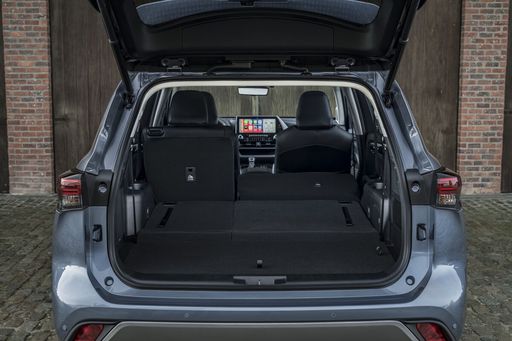 @ Toyota
@ Toyota

|

|
|
|
|
Costs and Consumption |
|
|---|---|
|
Price
35200 - 51000 £
|
Price
-
|
|
Consumption L/100km
0.4 - 7.9 L
|
Consumption L/100km
-
|
|
Consumption kWh/100km
-
|
Consumption kWh/100km
-
|
|
Electric Range
124 - 134 km
|
Electric Range
-
|
|
Battery Capacity
19.70 kWh
|
Battery Capacity
-
|
|
co2
8 - 180 g/km
|
co2
-
|
|
Fuel tank capacity
45 - 66 L
|
Fuel tank capacity
-
|
Dimensions and Body |
|
|---|---|
|
Body Type
Estate
|
Body Type
-
|
|
Seats
5
|
Seats
-
|
|
Doors
5
|
Doors
-
|
|
Curb weight
1575 - 1853 kg
|
Curb weight
-
|
|
Trunk capacity
510 - 690 L
|
Trunk capacity
-
|
|
Length
4902 mm
|
Length
-
|
|
Width
1849 mm
|
Width
-
|
|
Height
1482 mm
|
Height
-
|
|
Payload
497 - 584 kg
|
Payload
-
|
Engine and Performance |
|
|---|---|
|
Engine Type
Petrol MHEV, Diesel, Petrol, Plugin Hybrid
|
Engine Type
-
|
|
Transmission
Automatic
|
Transmission
-
|
|
Transmission Detail
Dual-Clutch Automatic
|
Transmission Detail
-
|
|
Drive Type
Front-Wheel Drive, All-Wheel Drive
|
Drive Type
-
|
|
Power HP
150 - 265 HP
|
Power HP
-
|
|
Acceleration 0-100km/h
5.7 - 9.3 s
|
Acceleration 0-100km/h
-
|
|
Max Speed
220 - 250 km/h
|
Max Speed
-
|
|
Torque
250 - 400 Nm
|
Torque
-
|
|
Number of Cylinders
4
|
Number of Cylinders
-
|
|
Power kW
110 - 195 kW
|
Power kW
-
|
|
Engine capacity
1498 - 1984 cm3
|
Engine capacity
-
|
General |
|
|---|---|
|
Model Year
2024
|
Model Year
-
|
|
CO2 Efficiency Class
D, E, F, G, B
|
CO2 Efficiency Class
-
|
|
Brand
Skoda
|
Brand
-
|
Skoda Superb Combi
The Skoda Superb Combi: A Blend of Elegance and Performance
The Skoda Superb Combi stands as a testament to the Czech manufacturer's prowess in combining practicality with stylish design. Offering a suite of advanced features and powerful engine options, it strikes a remarkable balance between efficiency, power, and technology. This estate model is perfect for those who seek an automobile that is both spacious and performance-driven.
Engine Options: Power Meets Efficiency
The Superb Combi offers a diverse range of engine choices, catering to varying needs of drivers. From the 1.5 TSI mHEV Petrol Mild-Hybrid to the robust 2.0 TDI SCR Diesel with All-Wheel Drive, there's a powertrain to suit every preference. The petrol variants provide up to 265 PS, ensuring a dynamic driving experience, whereas the plug-in hybrid model emphasises efficiency with a stunning consumption rate of 0.4 L/100km and an electric range reaching up to 134 km.
Innovative Features: A Technological Marvel
Equipped with the latest in automotive technology, the Superb Combi makes driving both a luxurious and innovative experience. Features such as the automated dual-clutch gearbox enhance the driving feel, offering smooth and responsive shifts. The inclusion of mild-hybrid technology in select models shows Skoda's commitment to sustainability without compromising on performance.
Design and Comfort: Spacious Elegance
With dimensions that emphasise interior space, the Skoda Superb Combi is designed to offer maximum comfort for all passengers. The generous boot capacity ranges from 510 to 690 litres, making it perfect for family trips or business journeys with ample luggage. Comfort is further enhanced by high-quality interior furnishings and intuitive infotainment systems that keep everyone entertained and informed.
Safety and Driver Assistance: Unwavering Protection
Skoda doesn't compromise on safety, equipping the Superb Combi with advanced driver assistance systems. From adaptive cruise control to lane keep assist, the vehicle ensures a confident driving experience. The robust body structure coupled with a comprehensive set of airbags and stability control systems work together to provide maximum safety on every ride.
Conclusion: A Premium Estate with Versatility
The Skoda Superb Combi is a remarkable car that expertly combines versatility with luxury and performance. Whether driven on long road trips or through city traffic, its blend of technology, comfort, and practicality ensures it excels in all conditions. It stands out as an excellent choice for those who require space without sacrificing the thrill of driving.
Toyota Highlander
Meet the Toyota Highlander: A Synergy of Power and Efficiency
The Toyota Highlander stands as a testament to modern automotive engineering, blending robust design with state-of-the-art hybrid technology. Designed for families seeking both luxury and practicality, this SUV is more than just a means of transportation—it is an innovative solution to contemporary demands.
Stellar Performance and Hybrid Technology
Under the bonnet of the Highlander lies a full-hybrid powertrain that marries efficiency with performance. Producing an impressive 248 PS, the Highlander doesn't just promise power but delivers it with a refined acceleration from 0 to 100 km/h in just 8.3 seconds. Such performance is coupled with a frugal fuel consumption rate ranging between 6.6 and 7.1 L/100km, setting a benchmark for hybrid SUVs in its class.
A Dynamic Driving Experience
Fitted with a Continuously Variable Transmission (CVT), the Highlander ensures a smooth and responsive driving experience. The all-wheel-drive system enhances safety and control, providing confidence across various driving conditions. With a maximum speed of 180 km/h, this SUV is crafted to perform on both city streets and open highways.
Precision Engineering and Eco-Conscious Design
The Highlander boasts a four-cylinder engine with a displacement of 2487 cm³, perfectly balancing power and environmental considerations. Despite its robust performance, the vehicle remains eco-conscious, adhering to CO2 emissions ranging from 149 to 160 g/km, classified under the CO2 efficiency classes E and F.
Space and Luxury Redefined
Designed with practicality in mind, the Highlander seats seven comfortably, making it an ideal choice for family adventures. Its 241-litre boot capacity, expandable with rear seats folded, ensures storage space is never a concern. From its elegant body design measuring 4966 mm in length to its expansive width of 1930 mm, the Highlander exudes both strength and elegance.
Unmatched Safety and Features
Incorporated within the Highlander are safety features and innovative technologies that enhance every drive. Depending on the trim level—Business Edition, Executive, or Luxury—drivers are offered an array of amenities designed to improve comfort and security.
Cost-Effective Ownership
Though packed with features, the Highlander remains cost-effective. Monthly costs range from €1428 to €1606, with per kilometre expenses of 57.2 to 64.3 cents. This financial feasibility, combined with enduring quality, makes the Highlander a worthwhile investment for conscientious consumers.
Conclusion
The Toyota Highlander transcends the typical expectations of an SUV, providing an exceptional blend of power, space, and technology. Whether navigating urban landscapes or embarking on rural escapes, it promises to deliver with unparalleled versatility and comfort.
The prices and data displayed are estimates based on German list prices and may vary by country. This information is not legally binding.
